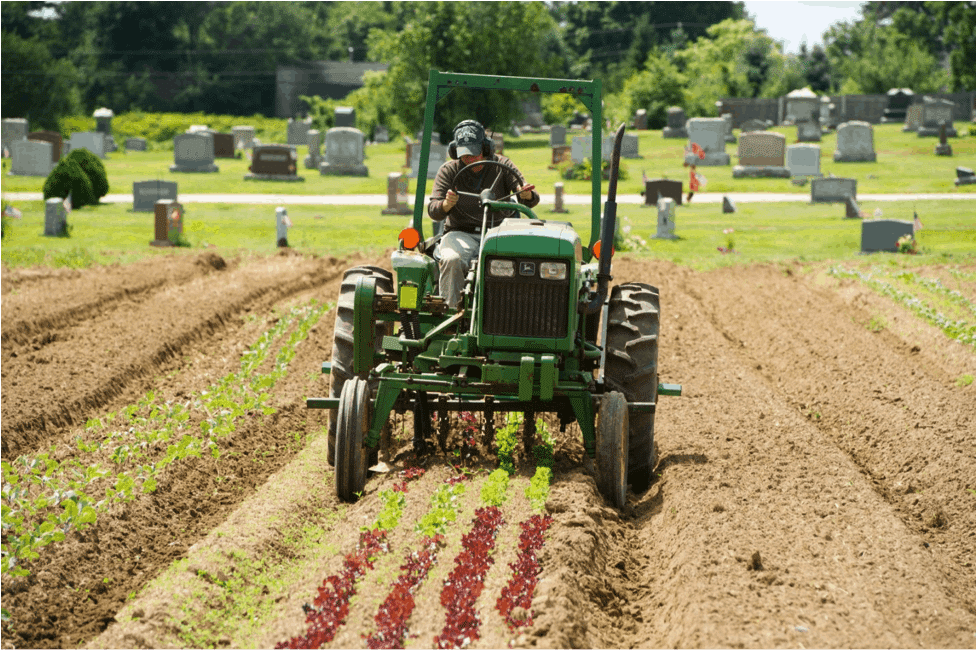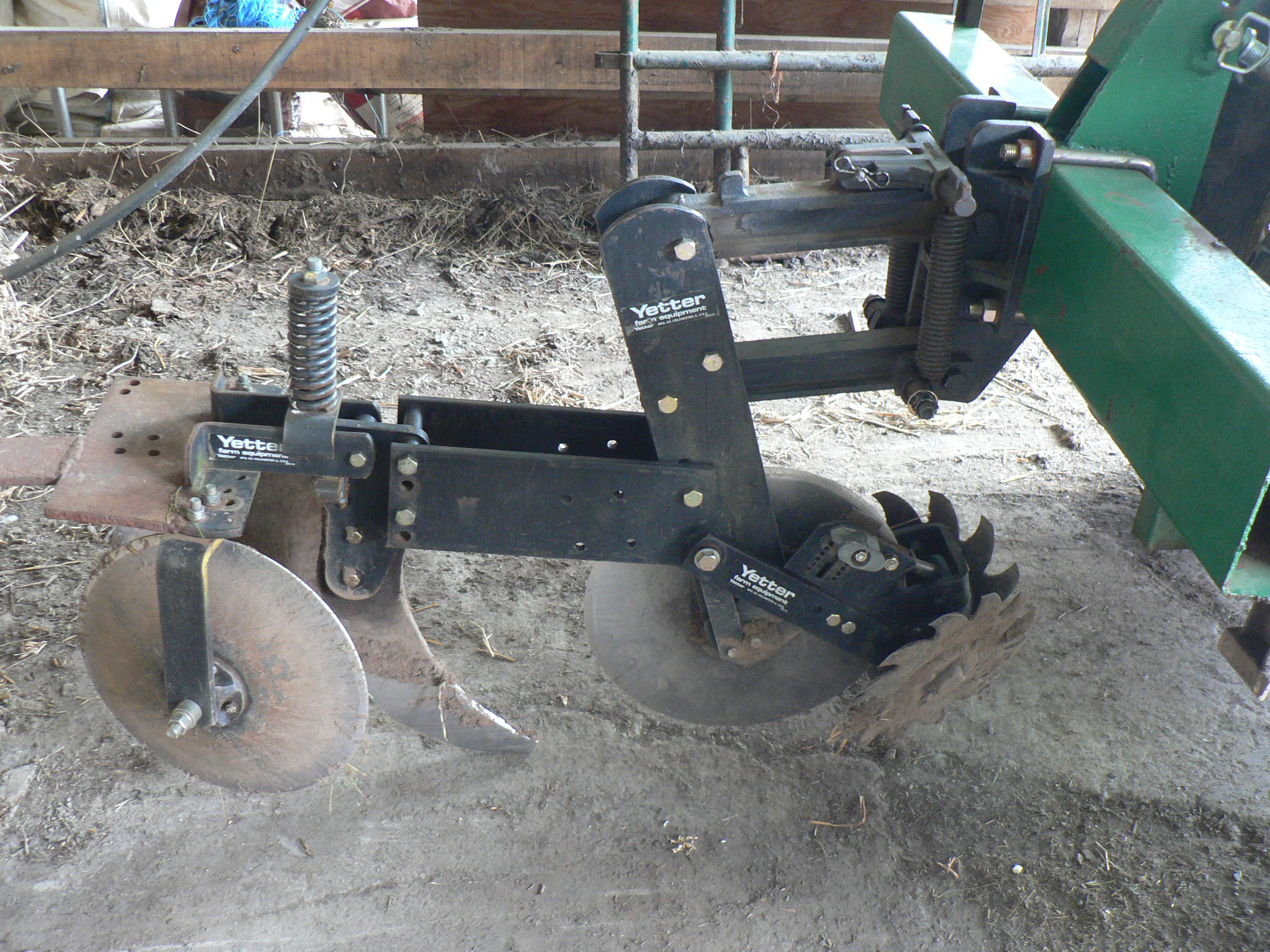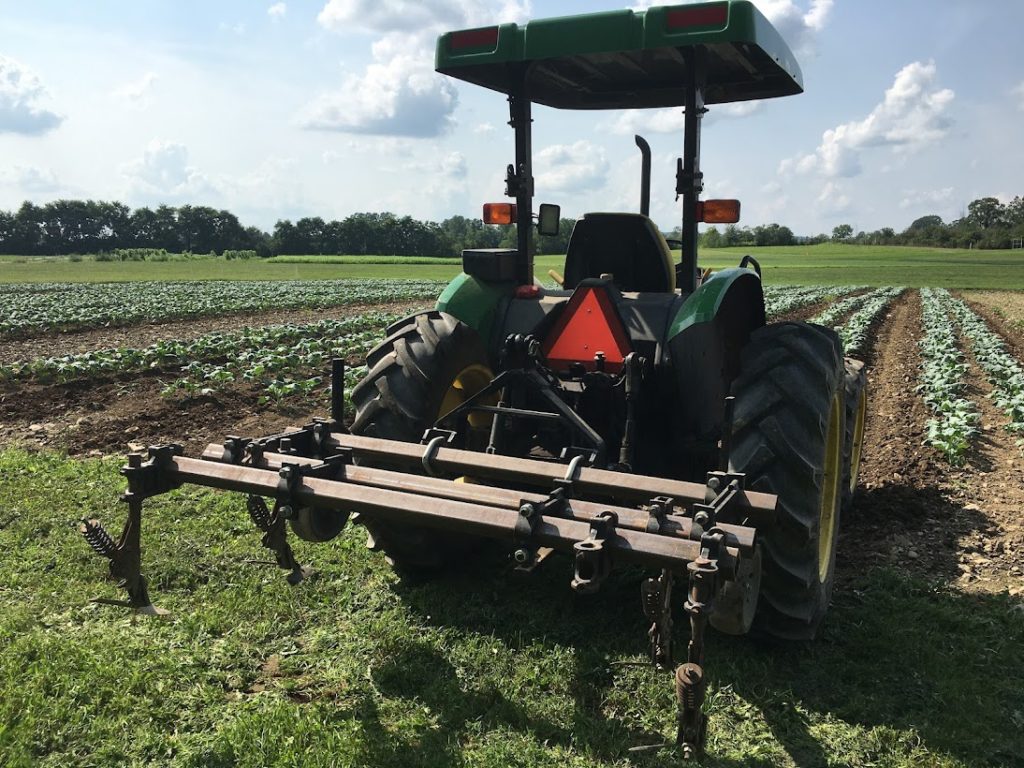Home » Projects » Reduced Tillage in Vegetables » Webinars
The Cornell Small Farms RT Project has collaborated on a variety of webinars to share results from field research experiments and to bring together farmers to share their methods and experiences. Listen to the recordings to learn about practices that fit your operation, from permanent beds, tarps, and mulches, to cover cropping, strip tillage, and cultivation tools. For videos on all other aspects of farm management, check out the Cornell Small Farms YouTube Page.
Reserving Beds With Tarps: Setting The Table For When It’s Time To Plant
We highlight two approaches on using tarps to hold beds in a busy rotation — with less mess! Rachel Cross (Spirit of Walloon Market Garden ) shared their system for managing salad green successions throughout the season. Molly Comstock (Colfax Farm ) shared how they are using woven fabric, which holds less water, to preserve beds between crops and move towards no-till. Both brought their observations about problem weeds and we touched on combining tarps with other strategies when they come up short. This was part of our 2021 farmer-to-farmer "Tarp Talk" webinar series.
Pairing Tarping With Cover Crops: Getting Both On The Menu
How can we use tarps to reduce tillage while adding cover crops? Tarps are being used to kill winter hardy cover crops, like rye and vetch, or to coverbare soil overwinter in preparation for early spring. Hear from Ben Stein (Edible Uprising Farm) and Janna Siller (Adamah) on their cash crop and cover crop planning, fall management, and how they are setting up for no-till planting when tarps come off. We also discussed pathway management and different mulching systems. This was part of our 2021 farmer-to-farmer "Tarp Talk" webinar series.
You Can’t Send Back Your Soils And Weeds: Tarping The Problems You’re Served
Laying down tarps in fall and holding over winter can help get beds planted earlier in spring, all while drawing down weeds. Maryellen Sheehan and Matthew Robinson (Hartwood Farm) shared how tarps have turned into “raincoats” for their silty soil and which crops they are prioritizing crops for tarping. David McDaniel (Earth Dharma Farm) discussed how fall bed preparation and overwinter tarping sets up their spinach successions for the following year and how their weed pressure has changed. We also talked about keeping tarps down for months at a time and managing them on larger fields. This was part of our 2021 farmer-to-farmer "Tarp Talk" webinar series.
Integrating Cover Crops and Strip Tillage
Watch Cornell Small Farms Director, Anu Ranjaragan, speak about integrating cover crops and strip tillage into organic vegetable systems. Learn about the underlying principles behind these practices, the tools needed to implement them, and how to stack practices to promote soil health. This presentation was first given at the Northeast Cover Crops Council Meeting and was completed in collaboration with our partners at the University of Maine and Michigan State.

Reduced Tillage on Permanent Beds
Permanent bed systems can help small farms improve soils and reduce tillage for a diversity of crops. Learn how farmers are adopting these systems and hear research results on how tillage, mulching and tarping practices can impact your weed control, labor use, and crop productivity. This is part of a 2017 collaboration between Cornell, Michigan State University, and the University of Maine.
Find FAQ's from the webinar HERE.
Strip Tillage Tools and Practices
Adapting strip tillage for organic production requires careful crop planning. Learn the tools and equipment and what research is showing about integrating cover crops, managing residue, attracting beneficial insects, and controlling diseases and weeds. This is part of a 2017 collaboration between Cornell, Michigan State University, and the University of Maine.
Cultivation for Reduced Tillage Systems
Cultivation of the in-row zone is challenging, especially in reduced tillage systems. Learn about innovative in-row cultivation techniques for managing weeds in reduced tillage crops. This is part of a 2017 collaboration between Cornell, Michigan State University, and the University of Maine.



